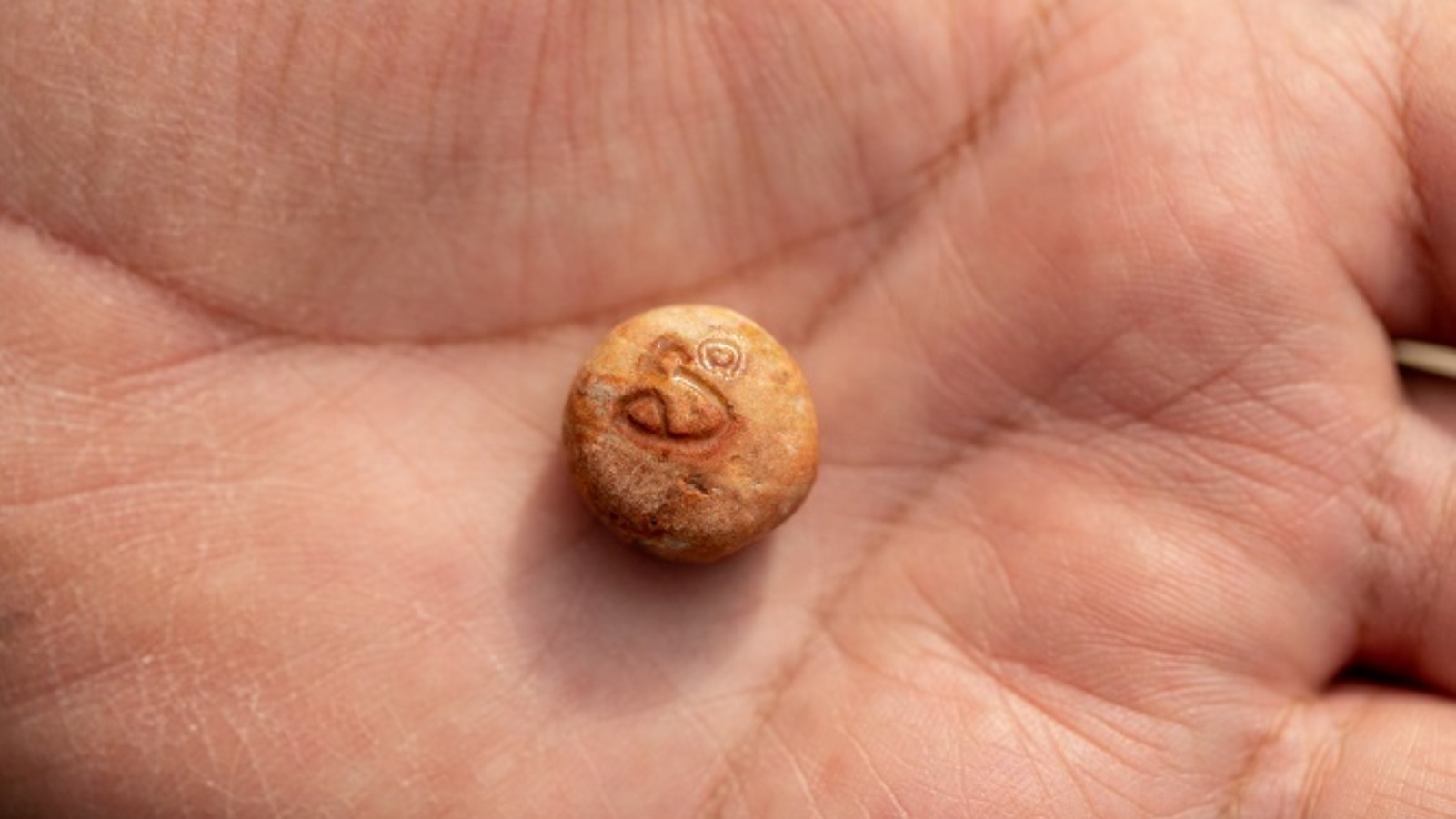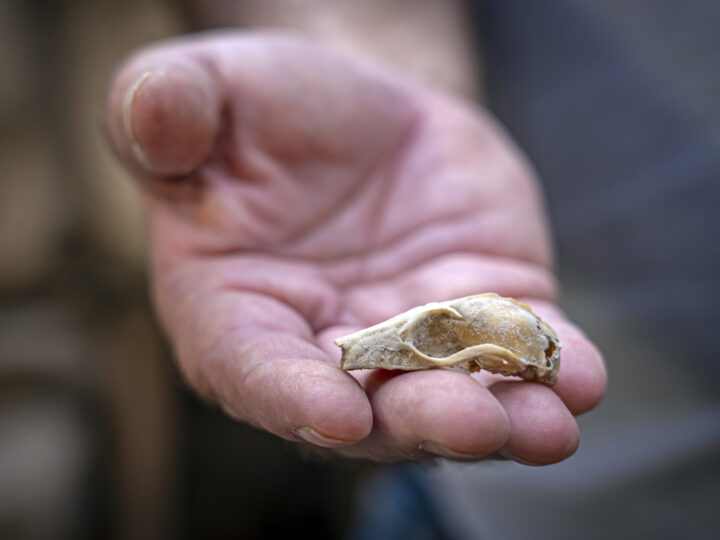An extremely rare artifact from the First Temple era, 3,000 years ago, was unearthed recently during the sifting of archaeological soil taking place in Jerusalem’s Emek Tzurim National Park: a tiny stone weight engraved with ancient Hebrew letters spelling “beka.”
The beka weight was used to weigh the half-shekel tax brought by adult Jews for the maintenance of the Temple and for the purpose of taking a census, as mentioned in Exodus 38:26: “One beka per head; [that is,] half a shekel, according to the holy shekel, for each one who goes through the counting.”
Archaeologist Eli Shukron, who directed the excavations on behalf of the Israel Antiquities Authority under the auspices of the City of David Foundation, explained that when the half-shekel tax was brought during the First Temple period, there were no coins, so they used silver ingots. A biblical shekel weighed 11.33 grams.
“In order to calculate the weight of these silver pieces they would put them on one side of the scales and on the other side they placed the beka weight. The beka was equivalent to the half-shekel, which every person from the age of 20 years and up was required to bring to the Temple.”
Shukron said beka weights from the First Temple period are rare and this weight is even rarer, because the inscription on it is written in mirror script.
“It can therefore be concluded that the artist who engraved the inscription on the weight specialized in engraving seals, since seals were always written in mirror script so that once stamped the inscription would appear in regular legible script.”
The soil in which the weight was found originated from the Western Wall foundations at the foot of Robinson’s Arch.
The artifact will be on public display during Hanukkah in Emek Tzurim National Park, which offers visitors an “archaeologists for a day” experience. Among the artifacts discovered so far in this project: King Hezekiah’s seal, coins from various periods of Jerusalem, arrowheads, jewelry and more.
Fighting for Israel's truth
We cover what makes life in Israel so special — it's people. A non-profit organization, ISRAEL21c's team of journalists are committed to telling stories that humanize Israelis and show their positive impact on our world. You can bring these stories to life by making a donation of $6/month.








